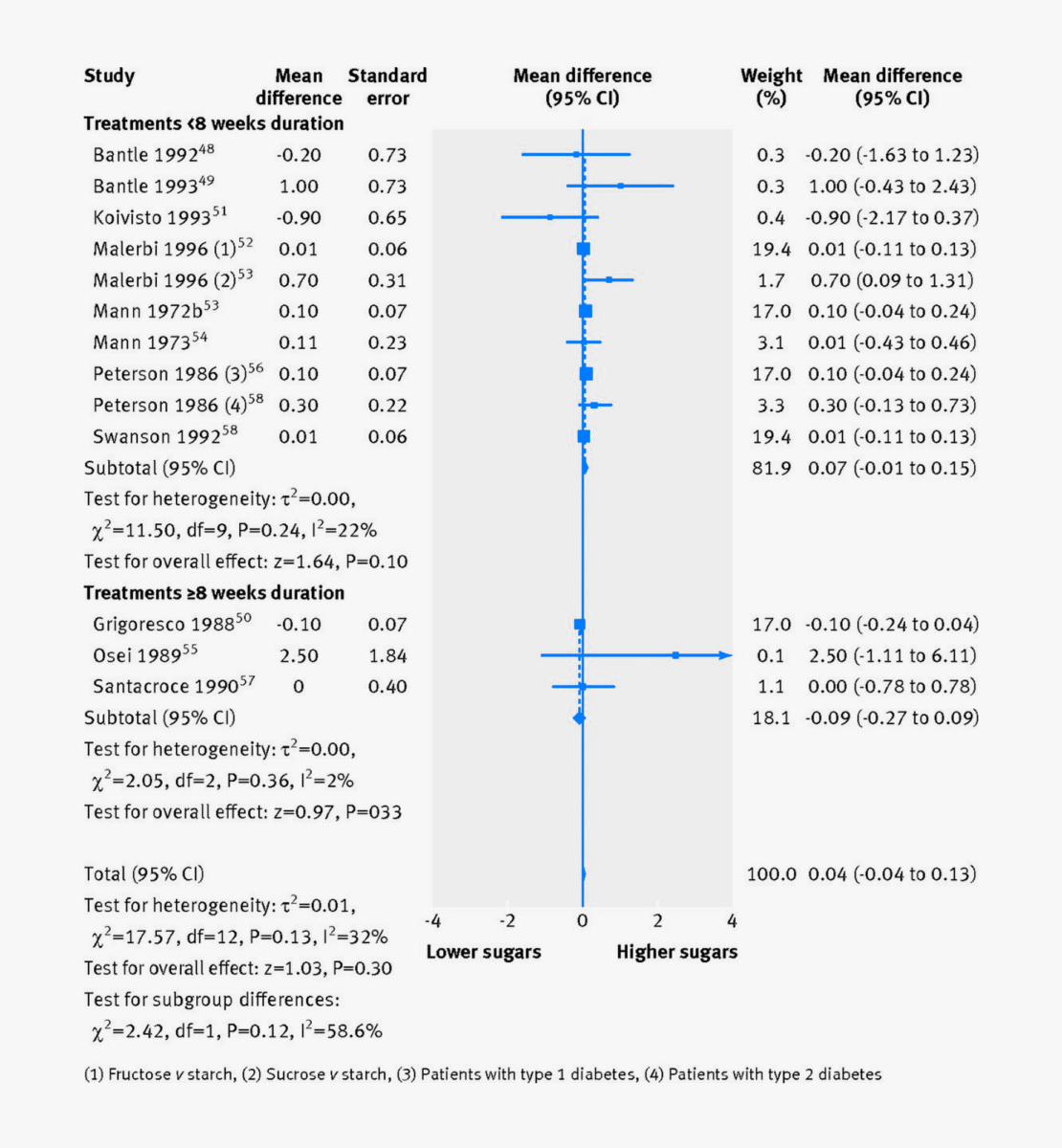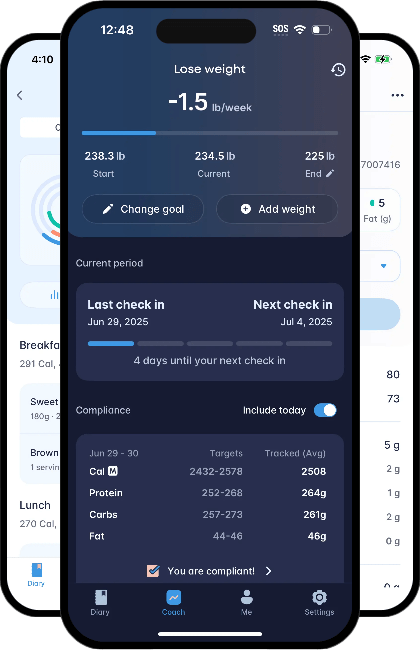Is sugar really to blame for the obesity epidemic?
In this episode, I break down one of the most common nutrition myths. Using evidence from epidemiology, randomized controlled trials, and meta-analyses, Layne explains why sugar and high fructose corn syrup aren’t the independent culprits they’re often made out to be. Instead, he reveals what the research actually says about calories, metabolism, and how oversimplified narratives mislead the public. If you’ve ever been told “sugar is poison,” this episode will challenge your perspective with science, not fear.
My personal beliefs…
- I believed that sugar was fattening beyond the calories it contained
- What is sugar?
- Monosaccharides (glucose, galactose & fructose) and disaccharides like sucrose (glucose:fructose), maltose (glucose:glucose), and lactose (glucose:galactose).
- Most people are referring to sucrose when they are talking about table sugar or added sugar
- Specifically I believe high fructose corn syrup (HFCS) was uniquely fattening
- HFCS is a blend of approximately 45% glucose and 55% fructose
- I also believed that fructose was bad for you
- It’s not a good source for muscle glycogen replenishment 1
- Mechanistic data demonstrating it increased de novo lipogenesis (DNL) 2
- Doesn’t increase leptin secretion 3
- I was also influenced by books written by Gary Taubes which claimed that sugar and refined carbohydrates were the cause of obesity.
- What is sugar?
The evidence in support of sugar causing the obesity epidemic
- The rise in obesity over the last century was associated with the increase in sugar intake
Figure from my article on this topic on BioLayne.com
- Animal models using very high doses of sugar & in particular fructose demonstrated increased fat deposition. 4 5
- Fructose’s unique impact on the liver metabolism & ability to enhance DNL led some to postulate it as a unique cause of obesity & non-alcoholic fatty liver disease (NAFLD) 6 7
- Overhearing a conversation with Dr. Nakamura shocked me. He did a lot of research on fructose & liver metabolism and he said that fructose was not uniquely fattening. 8
The Case Against Sugar Causing the Obesity Epidemic
- At first I tested it on myself. I stopped worrying about sugar and just controlled my calories and found that it did not affect my body composition. In fact, I got absolutely SHREDDED eating 50-100g of sugar per day during my contest prep in 2010 & won a pro bodybuilding show
- I started thinking about the fact that all carbohydrates essentially end up as sugar after digestion and absorption, so why would ingestion of sugar have a unique effect on metabolism?
- Some people claimed the glycemic index was important but fructose was actually relatively low GI. 9
Isoenergetic exchanges of free sugars with other carbohydrates or other macronutrient sources. Pooled effects for difference in body weight (kg) for studies comparing isoenergetic exchange of free sugars (higher sugars) with other carbohydrates (lower sugars). Data are expressed as weighted mean difference (95% confidence interval), using generic inverse variance models with random effects

- The true test is if we control calories & vary the amount of sugar or glycemic index of the diet, does sugar impact fat gain or loss? The answer is a resounding NO
- A meta-analysis of 68 studies that examined diet sugars impact on weight when exchanged isocalorically for other non-sugar carbohydrates found NO difference. 10
- There was also no unique effect of fructose on body weight in controlled feeding trials where it was exchanged 1:1 with other carbohydrates. 11
- Sugar also did not affect body weight when substituted isocalorically for fat. 12 13 14
- In a classic study comparing a high sucrose diet (>100g sucrose/day) vs. a low sucrose diet (~10g sucrose/day) Surwit et al. found virtually identical fat loss between these diets in a very tightly controlled feeding study. 15
- What about HFCS? Is it uniquely fattening compared to other sugars? Since we have established other sugars are not uniquely fattening, what about HFCS?
- A meta-analysis of studies exchanging HFCS, glucose, or sucrose found no difference in body weight when calories were equated between diets. 16
- Beyond weight loss, what about metabolic health?
- Several meta-analysis and systematic reviews have demonstrated that HFCS/sucrose/fructose have no effect on cardiovascular disease risk factors, glycemic control, blood lipids, cancer risk, or liver fat accumulation when exchanged isocalorically with other carbohydrates. 17 18 19 20 21 22 23 24 25 26 27
- What about the glycemic index?
- Glycemic index is the area under the curve of 2 hour blood glucose response to 50g of a carbohydrate containing food.
- Scale is 0-100. Glucose is 100, white bread is 75, most vegetables are under 20, ice cream is 60.
- GI is only for a carbohydrate source in isolation. As part of a mixed meal the effect of GI is severely blunted. 28
- GI does not appear to impact weight loss, cardiovascular disease risk, or diabetes risk 29
- Controlled feeding trials show no difference in weight loss when calories are equated between low & high GI diets. 15
- Sugar intake, including SSBs, has DECREASED over the last 20 years while obesity has continued to rise. 30 31 32
- This is because calories have continued to increase along with added fats. 30
- Many populations are lean despite eating diets high in sugar
- The Hadza eat approximately the same amount of sugar as people in the US but are not obese. 33
- Mbuti pygmies get up to 80% of their calories from honey but aren’t obese. 34
- Some may say that it’s because it’s ‘natural sugar’ (as if somehow it’s chemically and structurally different… it’s not) but even the Kuna of Panama get around 17% of their energy (about the same as the USA) from sugar and much of it is from refined sucrose, but they are not obese. 35
- What about sugar addiction?
- Very little evidence to support sugar addiction in humans but there is some evidence for food dependance, but most of these foods are high in sugar, fat, and have specific textures and mouth feel. 36 37 38
Things I am NOT saying:
- Sugar is good for you
- You should eat sugar
- Sugar is good for weight loss
- Focus on your total energy intake, protein, and fiber. Those are the biggest drivers for body composition and metabolic health
If you want to read more, you can check out my deep dive here: https://biolayne.com/articles/nutrition/why-sugar-did-not-cause-the-obesity-epidemic/
References
- Effects of glucose or fructose feeding on glycogen repletion in muscle and liver after exercise or fasting
- Fructose drives de novo lipogenesis affecting metabolic health
- Dietary fructose reduces circulating insulin and leptin, attenuates postprandial suppression of ghrelin, and increases triglycerides in women
- Consuming Fructose-sweetened Beverages Increases Body Adiposity in Mice
- Effects of chronic dietary fructose with and without copper supplementation on glycaemic control, adiposity, insulin binding to adipocytes and glomerular basement membrane thickness in normal rats
- Effects of Dietary Fructose Restriction on Liver Fat, De Novo Lipogenesis, and Insulin Kinetics in Children With Obesity
- Role of Dietary Fructose and Hepatic De Novo Lipogenesis in Fatty Liver Disease
- Dietary fructose induces a wide range of genes with distinct shift in carbohydrate and lipid metabolism in fed and fasted rat liver
- Is fructose the optimal low glycemic index sweetener?
- Dietary sugars and body weight: systematic review and meta-analyses of randomised controlled trials and cohort studies
- Effect of fructose on body weight in controlled feeding trials: a systematic review and meta-analysis
- Effects of replacing the habitual consumption of sugar-sweetened beverages with milk in Chilean children
- Sucrose substitution in prevention and reversal of the fall in metabolic rate accompanying hypocaloric diets
- Effects of sucrose on resting metabolic rate, nitrogen balance, leucine turnover and oxidation during weight loss with low calorie diets
- Metabolic and behavioral effects of a high-sucrose diet during weight loss
- Effect of fructose instead of glucose or sucrose on cardiometabolic markers: a systematic review and meta-analysis of isoenergetic intervention trials
- Relation of total sugars, fructose and sucrose with incident type 2 diabetes: a systematic review and meta-analysis of prospective cohort studies
- Food sources of fructose-containing sugars and glycaemic control: systematic review and meta-analysis of controlled intervention studies
- Consumption of Sugars, Sugary Foods, and Sugary Beverages in Relation to Cancer Risk: A Systematic Review of Longitudinal Studies
- Effect of Fructose on Established Lipid Targets: A Systematic Review and Meta-Analysis of Controlled Feeding Trials
- Heterogeneous Effects of Fructose on Blood Lipids in Individuals With Type 2 Diabetes
- Controversies about sugars: results from systematic reviews and meta-analyses on obesity, cardiometabolic disease and diabetes
- Effect of fructose on glycemic control in diabetes: a systematic review and meta-analysis of controlled feeding trials
- ‘Catalytic’ doses of fructose may benefit glycaemic control without harming cardiometabolic risk factors: a small meta-analysis of randomised controlled feeding trials
- Effect of fructose on postprandial triglycerides: a systematic review and meta-analysis of controlled feeding trials
- Influence of dietary macronutrients on liver fat accumulation and metabolism
- Effects of free sugars on blood pressure and lipids: a systematic review and meta-analysis of nutritional isoenergetic intervention trials
- Effect of macronutrients on the glycemic index
- Relevance of the Glycemic Index and Glycemic Load for Body Weight, Diabetes, and Cardiovascular Disease
- Food Availability (Per Capita) Data System
- Trends in sugar-sweetened beverage consumption among youth and adults in the United States: 1999-2010
- Trends in dietary carbohydrate consumption from 1991 to 2008 in the Framingham Heart Study Offspring Cohort
- Hunter-Gatherer Energetics and Human Obesity
- Metabolic Studies in the African Pygmy
- Hypertension, the Kuna, and the epidemiology of flavanols
- Sugar addiction: the state of the science
- What Is the Evidence for “Food Addiction?” A Systematic Review
- Eating dependence and weight gain; no human evidence for a ‘sugar-addiction’ model of overweight

